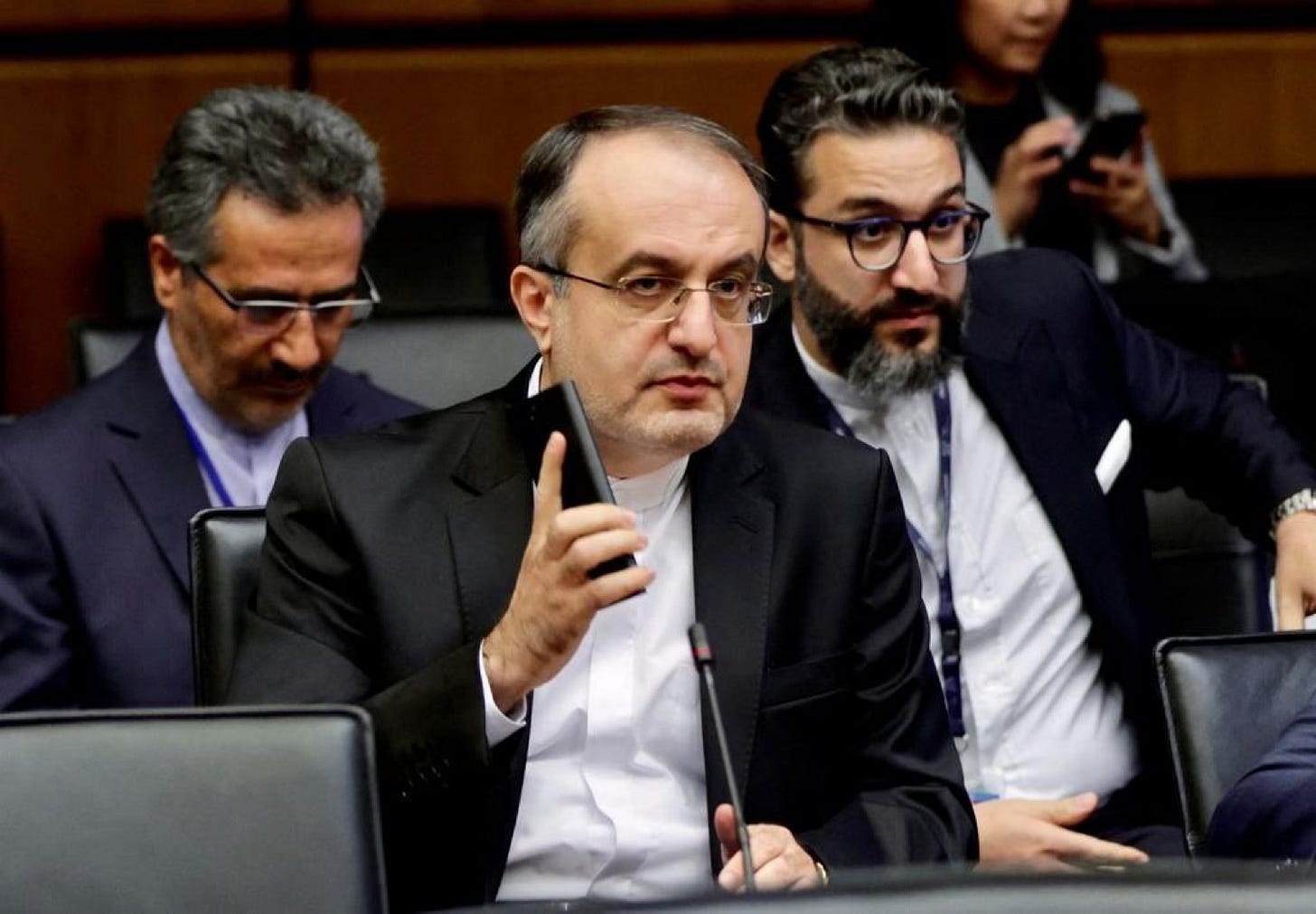Iran lashes out, installs advanced centrifuges after IAEA board resolution
Vowing a “firm and proportional” response, Iran installed a cascade of advanced IR-6 centrifuges at an underground facility and turned off two agency cameras after IAEA board resolution

Vowing a “firm and proportional” response, Iran installed a cascade of advanced IR-6 centrifuges at an underground facility and turned off two cameras after the International Atomic Energy Agency (IAEA) governing board voted Wednesday (June 8) to adopt a resolution urging that it fully cooperate with a probe into suspected past nuclear work.
Meeting in Vienna, the 35-nation IAEA Board of Governors voted to adopt a resolution sponsored by the United States, France, Germany and United Kingdom that “calls upon Iran to act on an urgent basis to fulfil its legal obligations and…take up the Director General’s offer… to clarify and resolve all outstanding safeguards issues,” according to a draft of the resolution.
Thirty nations voted in favor of the resolution, two—Russia and China—voted against, and three (India, Pakistan and Libya) abstained.
After the vote, Iran’s acting ambassador to the IAEA vowed that Iran “will deliver an appropriate response.
“Those who proposed and backed the resolution will bear the consequences,” acting Iran envoy Mohammad Reza Ghaebi said.
Iran “has taken practical, retaliatory steps including ‘installing advanced centrifuges,’ and ‘disabling cameras operating beyond safeguards,’” in response to the rebuke, Iran’s foreign ministry said in a statement, according to Iranian journalist Abas Aslani.
“The US-E3 put their shortsighted agenda ahead of the IAEA’s credibility by pushing a miscalculated and ill-advised resolution against a country with the world’s most transparent, peaceful nuclear program,” Iran foreign ministry spokesman Saeed Khatibzadeh wrote on Twitter. “The initiators are responsible for the consequences. Iran’s response is firm and proportionate.”
The IAEA reportedly informed member states in a report Wednesday that “Iran had started installing a cascade…of advanced IR-6 centrifuges at its underground enrichment plant at Natanz, a lonstanding plan it had not acted on for months,” Reuters reported.
“Iran has now also told the agency it plans to install two more such cascades of the uranium-enriching cascades, which are much more effective than first generation IR-1 centrifuges, the only ones the 2015 deal allows Iran to enrich with at the Natanz plant,” the Reuters report said.
Meantime, the US and three European sponsors of the resolution--all original signatories of the 2015 Iran nuclear deal which the US quit in 2018--welcomed its adoption, saying if Iran fully cooperates, the IAEA board could put the matter to rest.
“If Iran does this and the Director General is able to report that the unresolved safeguards issues are no longer outstanding, we would see no need for further Board consideration and action on these issues,” France, Germany, the United Kingdom and United States said in a joint statement.
US National Security advisor Jake Sullivan also urged Iran to take a draft deal that has been ready since March under which the United States and Iran would return to full implementation of the 2015 Iran nuclear deal, formally known as the Joint Comprehensive Plan of Action (JCPOA).
“There is a deal on the table in our view that would effectuate a compliance for compliance return to the JCPOA without dealing with extraneous issues,” Sullivan told reporters aboard Air Force One today as they accompanied Pres. Biden to Los Angeles for the Summit of the Americas.
“That deal is available to Iran,” Sullivan continued. “They should take it and if they don’t, that’s on them.”
Ahead of the anticipated IAEA Board action today, Iran in recent days conveyed messages proposing meetings if the resolution would be withdrawn, a European diplomat said.
“Nothing on substance,” a European diplomat told me of messages the Iranian foreign ministry reportedly conveyed to the US via the EU. “Just about meetings in case the resolution would be withdrawn.”
The European diplomat anticipated that there will be a strong reaction by Iran to the adoption of the resolution. “They will take steps vis a vis the IAEA,” he said. But, he added, “I still believe they will not break negotiations totally.”
Sahil Shah, a non-proliferation specialist with the European Leadership Network, also predicted a clear but measured Iranian response to the resolution, given its relative mildness.
“Tehran has made it clear that if a resolution of any kind is passed, a ‘proportionate, effective and immediate’ response will follow, but it is unlikely that Iran will do something that would be the final death blow to the ongoing negotiations on the nuclear deal's restoration,” Shah told me.
“Given the mild nature of the resolution and Iran's tendency to opt for technically reversible responses, any escalation will likely track with Tehran's existing plans to expand its nuclear program or be in the domain of further limiting the Agency's verification and monitoring effort,” Shah said.
****
